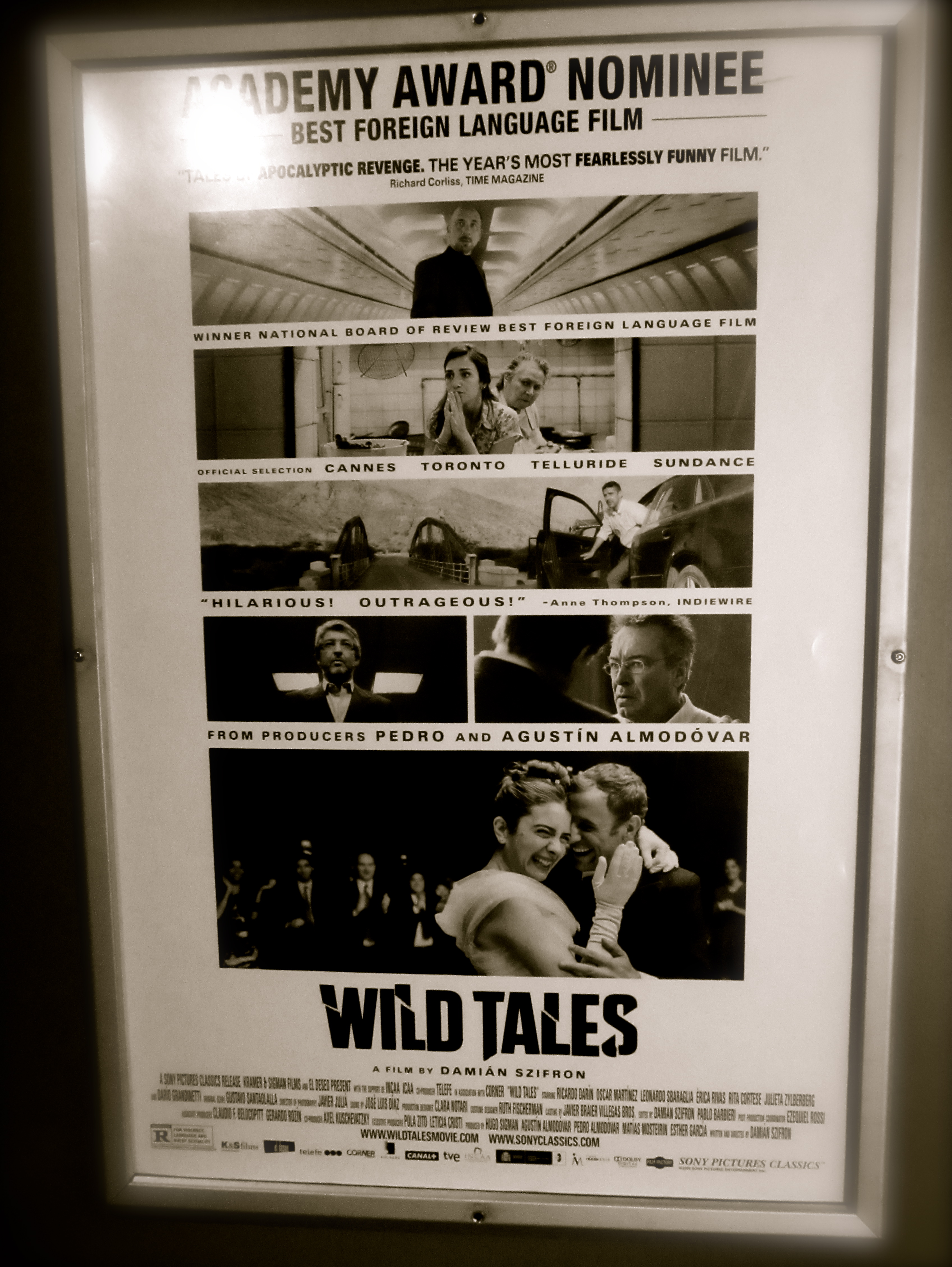Damián Szifron’s movie WILD TALES opens with a prologue in which the laughs come at you like Roman slaves claiming to be Spartacus, one after another. It’s the first, and shortest, of six revenge comedies in a mordant Argentinian anthology that keeps one guessing at the violence to come while making sure we always know, or think, that it will. The divergences of class and privilege, and official corruption, pervade the stories; so too, in the last names of the characters, does the great diversity of the country’s European descendants, whether Spanish, Russian, Italian, or Jewish; so, also, do strong women and macho, crybaby men. Fully half of the tales deal with traffic, an Argentinian bugaboo, the injuries crying out for redress being a towed car, a hit-and-run homicide, and road rage. WILD TALES isn’t just hilarious. It’s cultural microcosm, psychological study, and social critique.
Revenge Tragedy is a genre that imposes the duty of vengeance on a hero who, in order to halt the cycle, perishes in the act, his or her death arising from a moral flaw that is expiated by its having occurred in a righteous course. There are, by contrast, plenty of comedies about comeuppance for this or that malfeasance, but little to parallel the tragic pattern. The phrase “revenge comedy” has been used in reference to funny movies about jealous lovers, but that doesn’t make you want to capitalize it. The WILD TALES are something else. These are: Revenge Comedies.
They earn the designation by leaving in, rather than removing, the violence, or the threat of it, while taking away its moral logic. Either it is out of proportion to the grievance, directed at the wrong person, carried out by someone other than the victim, or looks like it is going to happen but doesn’t. The exact opposite, in other words, of Revenge Tragedy, in which the violence is proportional, exacted on the perpetrator, by the injured party, and obligatory. Vengeance stands by the wrong like Laurel next to Hardy, protrudes from the plot like Cyrano’s nose, tips the scales off the table. Thence comes the laughter of contrast, disjunction, and surprise, the hilarity of the out-of-whack.
To write about the tales in detail is to negotiate a thicket of spoilers. Suffice it to say the following. The prologue, “Pasternak,” is an absurdist masterpiece, so breakneck as to make the credits that follow a physiological necessity; they’re needed to come down from the high. “The Rats,” the tragi-comedy which follows, is a grim change of tone; its ironies are deep, its motivations comically skewed. Next, on a highway near Salta, comes, with “The Strongest,” the road rage; the title, like that of Strindberg’s “The Stronger,” about women in a power play over a man, makes one wonder to which, if either, of the two male drivers, who take power from their vehicles, it applies. The superb actor Ricardo Darín stars in the fourth tale, “The Little Bomb,” as a demolition engineer so obsessed with detail that he insists on a receipt for his daughter’s birthday cake, the delay of which causes his car to be towed; and that, in WILD TALES, means war. The Argentinian obsession with corruption drives “The Proposal,” which deflects responsibility for the hit-and-run onto a third party for, to say the least, a price. In the last tale, “Until Death Do Us Part,” the groom invites his illicit lover to the wedding. Enough said.
WILD TALES (RELATOS SALVAJES) is in Spanish with English subtitles. Check listings for viewing options.
